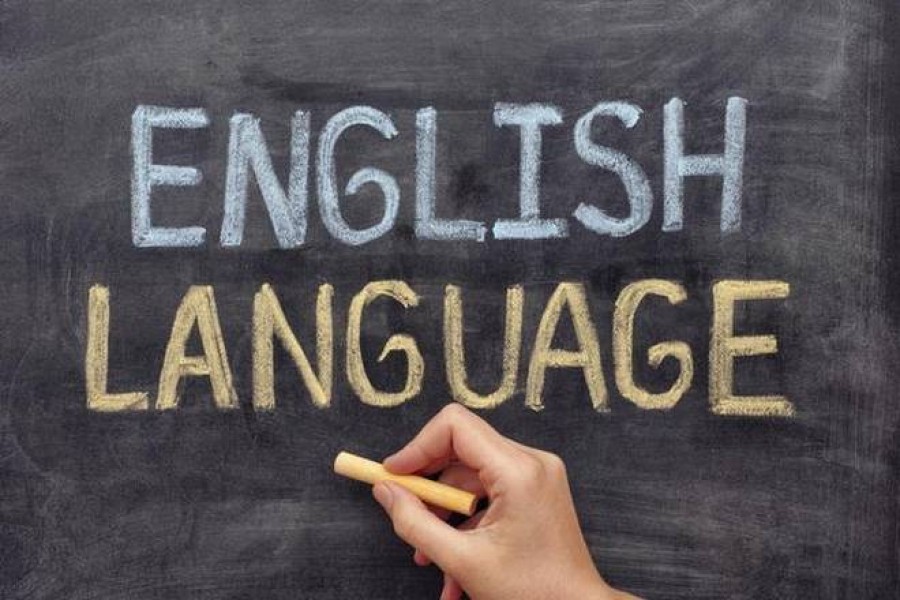The secondary and higher secondary students who nowadays pass their school and college final exams with GPA-5 understandably get high grades (80+ or 'star marks') in all subjects. The subjects also include English, which invariably causes dread to average students. Thanks to mushrooming of coaching centres and availability of myriad types of notebooks across the country, the cities in particular, students perform well in the subject. This spectacle is generally seen almost every year.
Upon coming through with flying colours, the students and their parents are found trying desperately to enrol their children in famed colleges and public universities. And things turn sour for most of the students on failing to make it to the lists of those selected for admission. A chief reason turns out to be poor performance in English by those seeking admission to branches (colleges) and subjects (universities) under liberal arts. Math also emerges as a horror to average students who target science disciplines.
However, against the backdrop of most of the general students' preference for arts disciplines, English remains the greatest hurdle to college and university careers. After failing in the admission tests, the long saga of heartbreak, disillusionment and study disruptions follows to haunt them for an indefinite period.
Academics and policymakers in the education sector untiringly keep trying to find a way-out. A foolproof solution still remains elusive. As seen in the previous years, the later years continue to churn out seemingly countless GPA (grade point average)-5 achievers. Thus another cycle of few successes and nearly wholesale failures begins moving.
In the bygone days, serious and educated parents in the cities used to make it compulsory for their school and college-going students to read The Statesman newspaper every day. This was a common scene in the educated families. In those days, The Statesman newspaper, published from Kolkata, would be available in Dhaka and other cities of East Bengal, later East Pakistan. It was considered one of best English dailies in the then subcontinent due its style of English, especially the editorials and regular columns. Academics and teachers involved in helping students improve their English language proficiency would recommend that they regularly read The Statesman. The proficiency in English of even undergraduate (below the Bachelor's level) people in those days had a lot to do with the habit of reading English materials. Moreover, the English teachers in those days were highly learned and dedicated. The system was devoid of crash courses, made-easy notebooks and 'sure success' guides.
In the pre-Pakistan days there were no shortcuts in learning English with the help of coaching centres and guidebooks. Moreover, the textbooks were quite difficult to come to grips with. In such a situation, failing in English used to be viewed as normal. The demand for brilliant and honest teachers thus was created by this stark reality.
A common feature in those days was students who would get decent pass marks were singled out as near-geniuses. Both the teachers and parents could forecast with confidence their crossing of the hurdle of the Bachelor's exam with distinction.
Those days have really been halcyon times. Few students were brilliant and extraordinary enough to muster the capability to enrol in the lone university in Dhaka. In short, English proficiency was a sine qua non for a student willing to complete a whole academic course. It was mainly because except Bangla, the medium of instruction in all other subjects was English. Students had to go through English textbooks round the year. The teachers used English during class lectures. This style of imparting education at college and university levels had continued throughout the Pakistan period.
Introducing the mother tongue Bangla in the classes of post-independence secondary, higher-secondary and university stages was undoubtedly a novel step. It was because the process of the birth of Bangladesh started with the Bangla Language Movement of 1952. Unfortunately, the restoring of Bangla to its deservingly dignified status prompted mediocre and below-average students to exploit the measure.
After coming out of universities upon completion of the secondary, higher-secondary and the university studies in Bangla, most of the students fared miserably in their professional careers. With poor English knowledge, these university-educated students eventually became misfits while executing their responsibilities, which are related to government jobs in particular. Examples are plenty that show the country's high-level officials being unable to communicate with clarity with their overseas counterparts. According to academics, poor command of English has led to this embarrassing development. Given the joining government service by the largely English-ignorant youths in droves, the whole situation is feared to deteriorate.
The rot begins from the secondary level at schools. It has been seen over the last few decades that it is at this level, the dread for English begins growing among school students. Education experts chiefly blame many lapses on the part of school authorities in this regard. Those include insufficient number of trained English teachers, lack of English-specific teachers and make-doing of English classes with the teachers of other subjects. This is more or less a common scene in both government and non-government schools.
Besides, the menacing presence of guidebooks and the veritably omnipresent coaching centres in all parts of the country stand in the way of students becoming equipped with the basic rules of English usage.
What's stunning is that notebooks meant for students of Bachelor's (Honours) and Master's levels also flood the market. Worse still, lots of students just read the abridged Bangla versions of plays and novels by Shakespeare, Charles Dickens et al. Few bother to even see the original works.
This being the English teaching and appreciation scenario, how can a nation expect its educated segments to be skilled in its all-important second language --- the global lingua franca of English?


